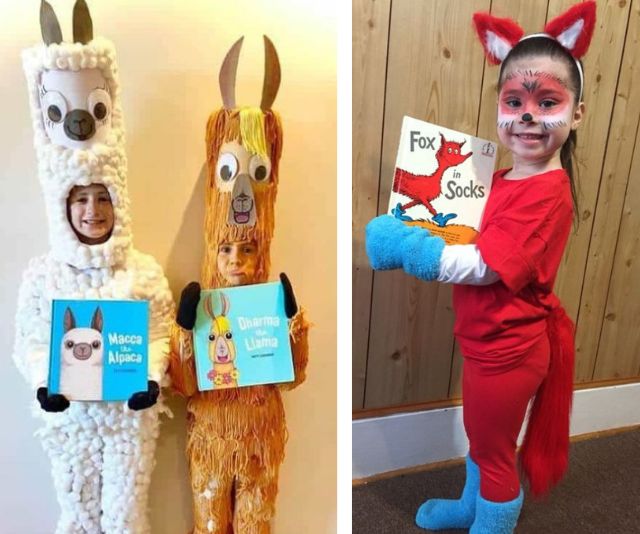Responding to the ‘reluctant reader’

Speech Pathologist, Sonia Bestulic shares her tips for helping your child find a love of books and shares why she's doesn't like the term 'reluctant reader'.
By Sonia Bestulic
He walked into the clinic with his shoulders slumped, and eyes lowered. His uniform shirt half tucked in; trickle stained with orange juice.
“You’re the lady who is going to make me read books,” he grumbled.
“Read books?!” I questioned, “Nope, not today!”
He immediately stood straighter and almost smiled at me.
“I know you love Cricket… so I’d love for you to help me learn all about cricket today!” I announced.
The energy changed immediately; I now received a full smile – he couldn’t wait to get started. Did he read any books that day? No, he did not; although he happily did quite a bit of reading on the subject matter of Cricket.

Sonia Bestulic is Founding Director of Talking Heads Speech Pathology, Children’s Author, Podcaster and Mum of 3.
I do not like the term ‘reluctant reader’ – it really doesn’t help.
So how about we focus on what is really going on. More often than not, we are referring to a child who is yet to find a joyful and positive connection and association with books, and with reading.
Why? The reasons are varied, however frequently, the child who has/ is experiencing a difficulty with being able to read, understandably may not view it positively; and the child who hasn’t had a personal motivation or connection to the content of a book, may not have discovered the joy.
For over two decades I have worked as a Speech Pathologist who has extensively worked with children deemed ‘reluctant readers’, and happily turned that label on its head. (As an aside – yes Speech Pathologists are specifically trained to prevent, diagnose and support children with learning difficulties).
So, in order to collectively chip away at the label of reluctant reader… here are my top tips:
1) Use the child’s motivators
So many are the options out there to fit any motivator! Joke books, graphic novels; books based on their favourite movies or subject matters. The list is endless.
2) Audiobooks
The benefits of daily audiobook listening are amazing. In 2020, research by the UK Literary Trust showed that:
- 71.7% of boys found there was a boost in comprehension
- 52.9% stated listening to audiobooks got them more interested in reading
- 42.6% said that listening to audiobooks made them more interested in writing
3) Read aloud to your child
Choose stories your child would find interesting and read them aloud. There are teens who still enjoy being read to! It creates a positive association and joyful shared connection through books.

“I do not like the term ‘reluctant reader’ – it really doesn’t help.”
4) Be mindful of your language
This means actively listening and reflecting back to your child what they are feeling in relation to books/ reading; so, they feel understood. This helps prevent resistance and arguments. You want to also use ‘team language’ that includes words like ‘we’, ‘together’ ‘us’ e.g. “Let us look at this story about… together.” Choose your labels; you don’t have to refer to homework as homework – it sounds like a chore already – try, what activities did you get from school today?
5) Use a younger peer/ sibling or a pet for your child to read to
This is great for any child, especially one who needs a simpler level of text; without feeling self-conscious, but rather empowered and able
6) Be outcome focused (not reading focused)
Use daily opportunities to reinforce the purpose/ outcome of a task where reading is already embedded e.g. make a cake (recipe reading), play a new game (instructions reading), grocery shopping (reading labels and the shopping list). Gently reinforce with naturalness; e.g. thanks for reading the grocery list
7) Include book browsing as part of your routine;
When walking past your local newsagent, pop in to look at the magazines/ books. Same goes for the shopping mall; walk into the bookstore or section to ‘have a look’, encouraging them to wander. Observe what they are drawn to or pick up.
8) Reach out for help
If your child does need that additional support with reading; reach out and find a professional (Speech Pathologist, Teacher etc) your child connects with.
Together, we can remove the label ‘reluctant reader’ – and funnel our energies into creating an experience of joy for our children, when it comes to books, reading and storytelling!
Sonia is based in Sydney Australia. She is Founding Director of Talking Heads Speech Pathology, Multi-Award Nominated Children’s Author and Podcaster of Chatabout Children with Sonia Bestulic. She is a well-respected advocate for human connection; with a passion for children’s holistic learning and development; and honouring the wellness of mothers to thrive in life.
www.chataboutchildren.com and www.soniabestulic.com.au and www.talkingheads.net.au




